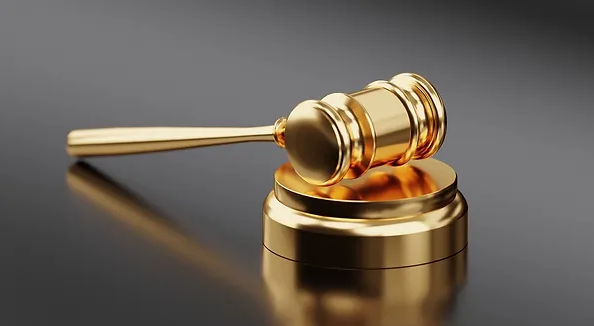PURCHASED AND REDEEMED
“I’m basically a good person.”
”All religions are basically the same.”
”If there is a God, he must not care.”
”I don’t need saving.”
In my previous article, I tried to dive into an understanding of Accountability and Authority. Please read that article before diving into this one, because jumping into a journey halfway through can lead to more questions than answers.
In that article, I explored how accountability and authority relate to topics like justice, morality, and liberty. I discussed how I must deliberately target who I am accountable to, and the three categories of authority. The categories are feeling helpless, total authority, or surrenderable authority. The first two will lead to either becoming a victim or a tyrant, but the third allows me to begin truly exploring how justice and liberty can accurately be applied to life both as an individual and for society as a whole.
Supreme Authority
If surrenderable authority and being accountable to another is the way I can attain things like justice and liberty does this give a full and complete answer to how I work my way through the complications of life? Not completely.
Just like Abraham Lincoln was eluding to in his remark about the two sides at war during the American Civil War, “both sides might be, but one side must be wrong.” It is completely possible in a two-sided argument for both sides to be wrong. In which case usually, one side just overpowers the other and things revert back to tyranny. So, how do we resolve inevitable conflicts?
If the only authority and accountability positions are the two parties involved in a dispute then by default one of them simply must be in the right since they are the only authorities in play. However, the fact that both sides could be wrong is a truth which is inherently self-evident. How can a truth like knowing both sides might be wrong accurate if the only measure of right or wrong rests entirely within the authority of the two sides involved? This is where those pesky things like moral absolutes and absolute truth come into the picture.
There MUST be a supreme authority to which both parties are held accountable. A position which has the authority to dispense fair judgment on either party. Justice withheld is injustice, and every human is born with this truth built into them. However, the goal of this supreme authority should not be merely to dispense justice but to reconcile relationships.
In order for this concept to work, there must be a clearly defined hierarchy for this authority trifecta. While the two parties are accountable to one another, they should both be individually and collectively accountable to the supreme authority first and foremost. The reason this is called the supreme authority is because it alone serves as the standard. Rather than being impartial, the supreme authority is completely and equally partial to both parties. The individual welfare and hopeful future of both conflicting parties are just as central to the desire of the supreme authority as is the relationships between each individual to itself, as well as the relationship between the conflicting parties.
The supreme authority should also be beyond contestation because, in order for it to truly fill its role, they and they alone must be able to stand in righteousness without being held accountable to anyone else. To do so adequately does not just mean they are blameless, but that the supreme authority is actually incapable of being wrong. The concept of being wrong or mistaken must be an impossibility if the supreme authority is to fill its role.
When two parties recognize they have complete control over their own choices and decisions, yet they are both accountable to a supreme authority, then they can accurately hold one another accountable to each other as well. Not because they “feel” something is right or wrong, but because they can look to the supreme authority as the measure of right or wrong. It also helps each of them make choices which are truly in the best interest of one another because they do not interact with each other based on potential selfishness, but rather on the standards established and maintained by the supreme authority.
A real-world example of how this principle should work would be a parent who is settling a dispute between two children who aren’t getting along. The desire of the parent (should be) to use discipline and authority to settle who was right (if any), who was wrong, dispense fair justice, all while maintaining a healthy love for each child individually, as well as trying to keep the relationship between the two children in mind in the hope of reconciliation.
We can also see this in the principles of America’s founding fathers. Contrary to some views, the idea of an authority greater than any human or any government lies at the very heart of the beliefs of the American Revolution. They believed the Government and the People should both be answerable to God first, and then to one another.
The heart of this principle is expressed in the stirring preamble of the Declaration of Independence written by Thomas Jefferson who wrote:
”We hold these truths to be self-evident, that all men are created equal, that they are endowed, by their Creator, with certain unalienable Rights, that among these are Life, Liberty, and the Pursuit of Happiness.”
Without a supreme authority, there are no “self-evident“ ideals since it is subject to the authority of the side in power.
Without a supreme authority, there is no equality, only those who rule and those who are ruled over.
Without a supreme authority, there are only the rights allowed by the side in power, there are no unalienable rights.
Without a supreme authority life, liberty, and the pursuit of happiness, as well as justice and morality, are all entirely at the mercy of the party in power.
A Supreme Authority that actually has the qualities we have identified creates a new problem though.
For this Supreme Authority to truly fulfill its role it cannot be capable of mistakes or half-truths. It must know absolutely every detail of everyone’s actions, including the hidden truths and motives of the individuals involved.
For the supreme authority to even have the right for us to surrender our authority to Him, and to be entirely accountable to Him, He must possess no faults of any kind, at all. This itself is absolute because if there is any fault of any kind in the position of the Supreme Authority then there is room for error, and we are not subject to it at all times. Instead, we are only subject to it when it is right, but then the argument of how to determine who is right, comes back into a question based on the position of authority held by any of the parties. The supreme authority simply must be incapable of being wrong or He is not the supreme authority.
Jesus Christ
No matter what your faith or worldview might be, at some point in all our lives, the concepts of accountability and authority will have to be addressed, and their application will be brought into question.
As I discussed, for a Supreme Authority to fulfill the complete application of both authority and accountability in my life, it simply must be perfect. If any fault of any kind is present within the Supreme Authority, it still means there is the potential for wrong. If the potential for wrong still exists then surrendering all my authority over would be no different than choosing to place the supreme authority in the position of tyrant over my life, making me a potential victim.
Since the existence of this Supreme Authority becomes self-evident as I explore things like justice and morality then I run into the relational problem of how can I have an actual relationship with a perfect being that has absolute authority and must fulfill the role of dispensing justice? If I have no way to be in a relationship with this being then I am simply condemned to await my turn to receive justice. What future does that hold for me?
In fact, some people have this view and choose to live for as much pleasure and power as they can, believing they’re eventually doomed anyway. “If I’m already doomed, why not try to have as much fun as I can now?”
The Christian worldview demonstrates the principles of accountability, authority, liberty, justice, and morality in the belief God made me and has authority over me. However, He also gives me free will and total authority to make every decision and perform every action entirely for myself. In order to best complete the relationship, I should choose to surrender my authority back into His hands, and accept I will be held accountable to His perfect judgment.
My confidence for doing so is knowing that He already knows what is to come before it happens, and I trust that He has my best interest in mind as He guides my decisions. This then dictates how I am to live with others, who each hold the same position of affection and value as I do in God’s eyes.
The hardest part of this concept is when I am measured against God’s standards I fall far short of perfection. This is why the blood atonement and sacrifice of Jesus Christ on the cross is so central to actually live out principles like accountability and authority. Without Christ’s death as payment for a full atonement of justice, then once measured against God’s standards I’m simply guilty and awaiting punishment. Through His sacrifice I was guilty, but the punishment has been paid and I have been set free, my sentence paid in full.
By God, the supreme authority, choosing to step down and become as human as I am, then live the blameless life I never could, only to pay the full punishment of death and judgment for my sake, true justice is appeased. Because justice withheld or denied is injustice, but the punishment for my transgressions has already been paid.
With justice fulfilled, rather than an angry judge waiting to punish me, I can approach God as perfect as the one who never committed any evil. With justice fully satisfied on my behalf there are no more barriers to keep me from having an actual relationship with the supreme being whom I can then trust to act as the mediator and mentor for everything in my life.
I might ask now, “but how can I trust the intentions of this supreme authority are for my good?”
By realizing He took the first step. He could have left me to face my justice alone. Instead, knowing absolutely everything I’ve ever done or will do wrong, and even knowing the motives of my heart behind all my actions, He alone knows the full amount of my punishment to be paid and still chose to pay that penalty for me. He didn’t come to die for the things I’ve done right, He died for all the things wrong. The only motive for someone to take on the full punishment of another is to show me an unconditional love that is impossible for anyone other than God to show. Because He chose to die for me, I can be confident that He loves me and has my best intentions in His heart. A true Savior.
This same saving grace that fulfills and rescues me from justice, is what then allows me to experience justice for myself through His judgment, not mine. I can now live out a life of targeted accountability and surrendered authority today and every day to come. Without it, I simply revert back to being a victim. Either hiding to keep things from getting worse, or lashing out as I try to fight for control. I might also decide to view myself as the end all be all. A fake God unto myself, leaving me with no ability to grow or learn with basically no meaning to my future.
Remember, in order for justice to truly be justice, it must equally apply to everyone. That means if this is true for me, it is true for everyone, and I should be willing to treat anyone like they are important enough for Christ to be willing to die for them in the same fashion He died for me.
So, ultimately I can surrender my past to Christ and be freed to truly pursue joy, justice, and liberty in my life. Then live out the same with the others around me.
Or…
I can become either a victim or an oppressor. Neither of which holds any freedom, justice, or morality. If I am the victim what future do I have? If I am the oppressor, how long will I be able to hold my position before my victims force a reversal of positions? Worse, how will I answer to the self-evident supreme authority waiting to dispense justice? Justice denied is injustice and if the self-evident supreme authority must be fair and just, He will not leave a wrong unanswered, and justice will be done.
Closing
A healthy view on accountability and authority helps set the tone for choices, actions, and discussions in nearly every aspect of life. Individual rights, Separation of Power, Government, Education, Economics, Family Structure, Social Justice, and a myriad of other topics can trace their root concepts back to how someone views accountability and authority. I hope there have been some views expressed here that are beneficial for you.
May the Grace, Love, and Justice of Jesus Christ be at the center of your day today, and in all of your days, Amen!



